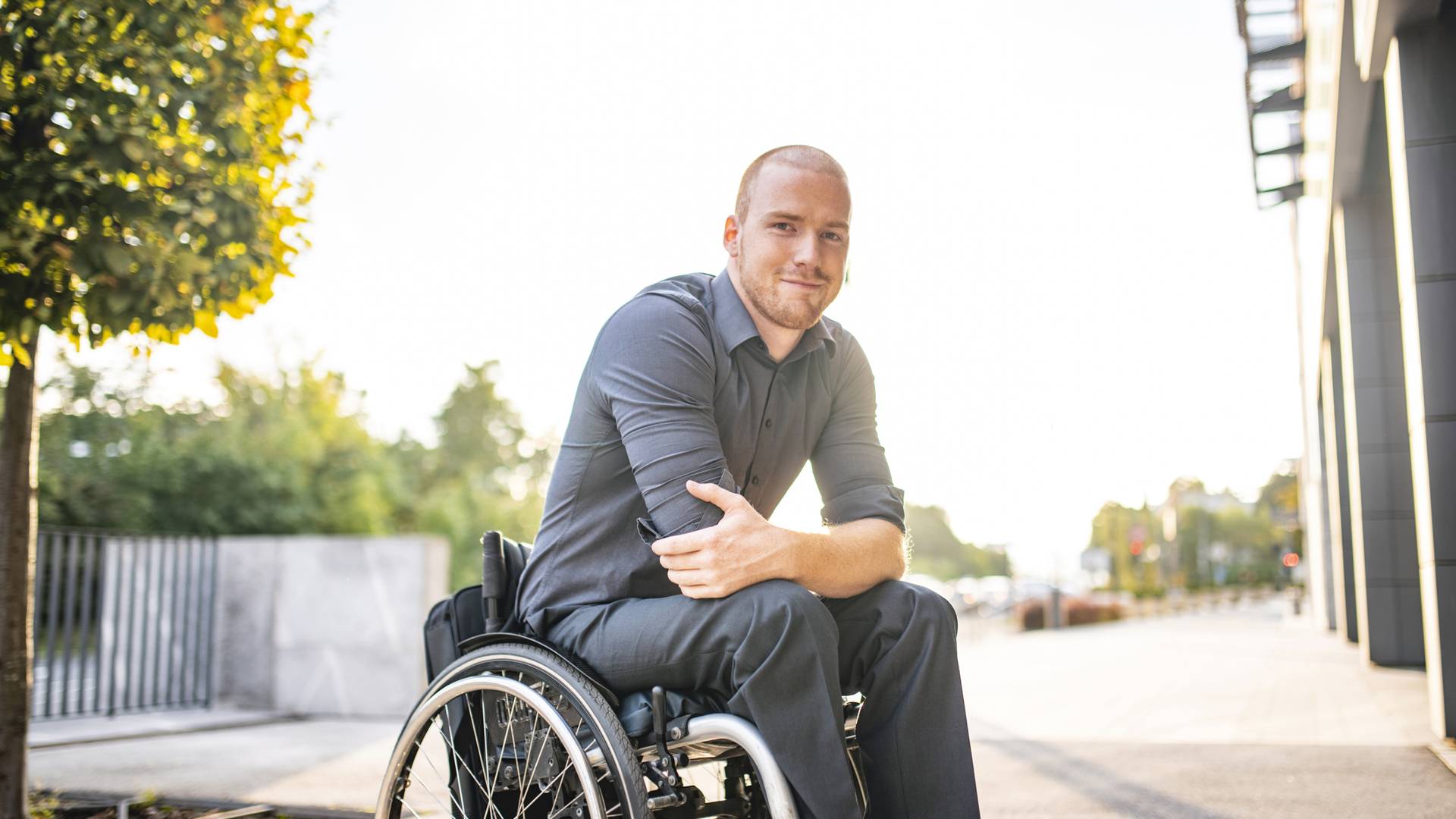What is meant by "specialized prosecutors"? Each state attorney is required by law to develop special units or to assign prosecutors to specialize in the handling of domestic violence cases, and to ensure they receive training to help them function in that capacity. As a Pinellas County state prosecutor, I was assigned to the misdemeanor domestic violence unit for just over nine months, and continued to handle domestic related offenses after being promoted to the felony division. Having served in that capacity for as long as I did, I am very aware of the manner in which domestic violence crimes are referred, investigated, and assessed in terms of their viability for prosecution, in the St. Petersburg / Clearwater area. Although there is a pro-prosecution policy in domestic violence cases, it does not mean necessarily that the charge will be filed. Sometimes the evidence is insufficient to establish a reasonable likelihood of successful prosecution. In other instances, the alleged victim or witnesses to the purported crime lack credibility. For further reading on filing decision criteria, see the "Defenses" section below.
The Florida legislature has also expressed its intent that criminal prosecution is the preferred method of enforcing compliance with violations of injunctions for protection against domestic violence (as opposed to civil contempt proceedings), a position that is also very much in line with its pro-prosecution policy on the handling of domestic related crime.
So what, exactly, is domestic violence? Domestic violence is defined in Florida Statute section 741.28 as "any assault, battery, aggravated battery, sexual assault, sexual battery, stalking, aggravated stalking, kidnapping, false imprisonment, or any criminal offense resulting in physical injury or death of one family or household member by another family or household member". The statute defines "family or household member" as spouses, former spouses, persons related by blood or marriage, persons who are presently residing together as if a family or who have resided together in the past as if a family, and persons who are parents of a child in common regardless of whether they have been married. With the exception of persons who have a child in common, the family or household members must be currently residing or have in the past resided together in the same single dwelling unit." If the relationship between the accused and the alleged victim does not meet the statutory criteria, the case will still proceed as it would otherwise, but the matter will not be treated as a domestic related offense, and the provisions of Florida law specific to domestic related crimes will therefore not apply.
Some of the offenses enumerated in section 741.28 constitute misdemeanors while others constitute felonies. Most of what gets prosecuted in county court are simple assaults, simple batteries, stalking charges, and violations of injunction for protection against domestic violence. Simple assault is a second degree misdemeanor, so the maximum penalty upon conviction is 60 days in jail, six months probation, or some combination of the two. Battery, stalking, and injunction violations are first degree misdemeanors, which carry a maximum penalty of twelve months probation, twelve months in county jail, or some combination of the two (the total sentence cannot exceed one year). Aggravated Assault, Aggravated Battery, Kidnapping, False Imprisonment, and sexually motivated domestic violence crimes all constitute felonies. The degree of felony, in accordance with Florida law, will establish the maximum penalty. A felony of the third degree (e.g. aggravated assault) is punishable by up to five years in state prison. A felony of the second degree (e.g. aggravated battery) is punishable by up to fifteen years in state prison. A felony of the first degree (e.g. sexual battery) is, in most instances, punishable by up to thirty years in prison. The low end of the sentencing range, in felony cases, is determined by Florida's sentencing guidelines. For further reading, see the Sentencing section of our website, and the "Resources" section below. More specific questions about sentencing guidelines should be directed to an experienced St. Petersburg criminal defense attorney.
You should be aware that if a person is adjudicated guilty of a crime of domestic violence, whether a felony or a misdemeanor, and that person has intentionally caused "bodily harm" to the victim, the court must order the person to serve a minimum of five days in the county jail, as part of the sentence imposed, unless the person is being sentenced to a non-suspended period of incarceration in a state correctional facility (in the case of a felony domestic related crime). Domestic battery is one of the very few misdemeanor offenses in the state of Florida that carry a minimum period of incarceration upon conviction. If there is no conviction, as would be the case with a diversion program or where the court withholds adjudication of guilt, the jail requirement is not mandatory. Also, if the offense causing bodily injury does not occur between family or household members then, of course, it is not a crime of domestic violence, and the minimum term of incarceration upon conviction would not apply there either.
In most circumstances, the court is also required, in domestic violence cases, to sentence the accused person to a minimum of twelve months probation and require that he or she complete a batterer's intervention program as a condition thereof. Under the applicable statute, it does not matter whether adjudication is withheld, or whether the person pleads guilty or no-contest. In its discretion, the court can decide to forgo imposition of the batterer's intervention program if it states the reasons therefore on the record. This rarely occurs.
St. Petersburg Criminal Defense Attorney Donald J. Kilfin is a former six year Pinellas county state prosecutor. As an assistant state attorney, he handled hundreds of domestic violence cases in both county and circuit court from pre-charge investigation through trial and appeal. If you have been arrested for a domestic related crime in St. Petersburg, Clearwater, or Tampa, The Kilfin Law Firm, P.C. can help.
Yet another unique aspect to domestic violence cases you should be aware of involves the prohibition on withholding adjudication of guilt on third degree felony offenses, that are crimes of domestic violence, for first time offenders. This is mandated by Florida law. Florida Statutes section 775.08435 prohibits the court from withholding adjudication of guilt in felony cases under certain circumstances. Ordinarily, for a first offense that is a third degree felony, the court may withhold adjudication of guilt, without the assent of the state attorney. For more information, see the "Withholding of Adjudication" section of our website under "Client Solutions". As of July, 2017, the Court may not withhold adjudication on any third degree felony offense that is a crime of domestic violence, unless: (1) the state attorney agrees in writing; or (2) there is a basis to do so that would also justify a sentencing guideline departure. An experienced St. Petersburg criminal defense lawyer can explain guideline departure bases in greater detail, but suffice to say, this change in the law made it much more difficult to avoid a conviction for a first time domestic related third degree felony where pre-trial intervention is not an option. In enacting this provision, the legislature took discretion from the court, and delegated that authority to the state.
This became an issue for me in a recent case where my client, who had no prior criminal record, was charged with Domestic Battery by Strangulation, a third degree felony. The victim alleged in a written statement to law enforcement that my client had choked her to the point of unconsciousness but, in her verbal recitation the day before, she said that, while he pushed her by the neck, he did not strangle her. There were other aspects to the case that affected the veracity of her written statement but because she was objecting to my client's participation in a diversion program, or a reduction in charge, I had a problem: the court had no authority to withhold adjudication of guilt, unless the state agreed in writing. Thus, if my client were to enter a plea of guilty or no contest, he would have walked of the court room a convicted felon, which was just not an option. After a very long and detailed letter to the prosecutor, attacking the alleged victim's credibility and presenting a number of other factors in mitigation, the state agreed to admit my client into a domestic violence diversion program, that will ultimately result in the case being dismissed.
Another limitation imposed in domestic violence cases relates to sealing the arrest record. In instances where a No-information is filed (e.g. where the state declines to prosecute and forgoes the filing of a formal charging document), where a nolle prosequi is filed (a document that terminates prosecution after formal charges have been brought), or where the case is dismissed following the successful completion of a diversion program, the accused person can expunge his or her record, as long as: (1) he or she has no other criminal convictions; and (2) he or she has never sought to seal or expunge an arrest record in the past (you can only seal or expunge one event in a lifetime). In cases of domestic violence, the record may be expunged in any one of the aforementioned circumstances as long as the additional two criteria are also met. Similarly, where the court withholds adjudication of guilt, the record may be sealed, in most instances, as long as the person has no prior convictions, and no prior record sealings or expunctions. There are a number of offenses under Florida law, however, that prohibit sealing the record, even where adjudication of guilt is withheld, and where the person would otherwise qualify (for more information, see the "Sealing and Expunging" section of our website). Crimes of domestic violence fit into this category. Thus, if you have no prior criminal history, you have never sealed a record before, and you receive a withhold of adjudication in your domestic violence related case (because diversion was not an option), you cannot seal that record.
As is hopefully apparent, domestic violence related crimes occupy a unique position under Florida law as it relates to bond issues, mandatory periods of incarceration upon conviction, prohibitions on withholding adjudication of guilt, and record sealing. As a former Pinellas County state prosecutor, I handled domestic related crimes for many years and became very familiar with the intricacies associated with them. As a St Petersburg criminal defense attorney, I use my nearly twenty years of knowledge and experience to navigate my clients through these cases without lasting consequence to the extent possible.
Domestic Battery
Along with violations of injunction for protection against domestic violence, simple battery is probably the most common domestic related offense for which people are arrested and prosecuted. In Florida, the offense of battery occurs when a person either (1) actually or intentionally touches or strikes another person against the will of the other; or (2) intentionally causes bodily harm to another person. Quite clearly, it doesn't take much to commit a battery - a simple touching can be enough. In reality, most officers will not make an arrest unless there is something aggressive or offensive about the touching. A visible sign of injury, no matter how benign, will usually result in an arrest for domestic battery provided the officer finds the alleged victim's statement credible. Statements from witnesses, even in the absence of visible injury, will also result in an arrest, in most cases. Remember that what separates a "battery" from a "domestic battery" is the relationship between the involved parties: a domestic battery is committed by one family or household member against another.
You should be aware that under Florida law, a person who has one prior conviction for battery, aggravated battery, or felony battery, and who commits any second or subsequent battery, commits a felony of the third degree. So, if you commit what would otherwise be a simple battery (a first degree misdemeanor) and you have a prior battery-related conviction (either felony or misdemeanor), you will be arrested (and quite possibly charged) with a third degree felony ("felony battery"). This provision applies to both domestic and non-domestic battery offenses. Also, the applicable statute states that "For purposes of this subsection, 'conviction' means a determination of guilt that is the result of a plea or a trial, regardless of whether adjudication is withheld, or a plea of nolo contendre is entered". If you have one or more prior battery offenses that were resolved by either pre-trial diversion or the filing of a no-information, then any subsequent simple battery charge cannot be enhanced to a felony battery. It is only those prior battery charges to which a plea of guilty or no contest was entered that can be used for the purposes of enhancement.
This can sometimes present an important negotiating chip for your St. Petersburg criminal defense attorney. If the prior battery offense occurred outside of Pinellas County, or the State of Florida, the arresting officer may not be aware of it. If there is probable cause to believe a domestic related battery occurred, the officer may make a misdemeanor arrest, in lieu of a felony. The prosecutor assigned to do the intake on the case will always run a rap sheet on the accused, which will give a detailed account of charges that occurred outside the county of arrest (or the state of Florida), so the prosecutor will therefore be aware of it. Effective pre-file negotiations between your St. Petersburg criminal defense lawyer and the assistant state attorney may result in the state agreeing to forgo a the filing of a felony charge. The flip-side of the agreement is usually an understanding that the accused will enter a plea to the misdemeanor and forgo his or her right to a jury trial. While the decision will ultimately be made by the client, averting a felony charge (particularly where the accused has no felony history) can be of tremendous benefit to the client for obvious reasons. For more information, see the "Affecting the Filing Decision" section of our website.
For those charged with domestic battery, who have no prior criminal history, a pre-trial diversion program may be available. At the misdemeanor level, first time offenders will almost always be permitted to complete diversion (an exception may be where the alleged victim objects or where the facts are particularly aggravating). At the felony level, having a domestic related battery offense diverted can present some additional challenges. Felony offenses are always subject to Florida's sentencing guidelines for the purpose of determining the appropriate sentencing range. If the offense is a second degree felony or higher, or the person otherwise scores prison, a diversion program will not be available. This is also a scenario wherein an experienced St. Petersburg criminal defense attorney can really make a difference in the outcome of the case. Effective negotiations with the prosecutor may result in the filing of a lower level felony offense (such a third degree "felony battery" charge, in lieu of a second degree, and more serious, "aggravated battery" charge), which would lower the person's guideline score and may result in an opportunity for diversion that would otherwise not be possible. I can recall numerous instances over the years wherein the prosecutor agreed to file a lesser degree of felony, a misdemeanor in lieu of a felony, or the dropping of certain charges to make a favorable resolution possible. Of course, there are always a number of conditions my clients are required to successfully complete in return, but these types of agreements can avoid many draconian consequences, including a felony conviction, and perhaps years in state prison. For more information, see the "Pre-trial Diversion" section of our website.
As part of pre-trial diversion in domestic battery cases (or sentencing in such cases, where diversion was not offered), the accused person will be required to enter and successfully complete the twenty-six week family violence counseling, or batterer's intervention, program.
In accordance with Florida law,a batterer's intervention program must meet the following requirements:
- The primary purpose of the program shall be victim safety and the safety of children, if present.
- The batterer shall be held accountable for acts of domestic violence.
- The program shall be at least twenty nine weeks in length and include twenty four weekly sessions, plus appropriate intake, assessment, and orientation programming.
- The program content shall be based on a psycho educational model that addresses tactics of power and control by one person over another.
- The program shall be funded by user fees paid by the batterer's who attend the program, which allows them to take responsibility for their acts of violence. An exception shall me made for local, state, or federal programs that fund batterer's intervention programs in whole or in part.
The only exception to this counseling requirement that I can think of is where the person is sentenced to jail or prison without a period of probation to follow. There are a number of treatment providers throughout Pinellas and Hillsborough Counties. You can complete treatment in your home county if the offense occurred in a different county. Recently, I had a client who lived in Hillsborough County but was arrested for domestic battery in Pinellas County. He was able to complete his counseling sessions and the diversion program in Hillsborough County, which he did successfully, and we have since expunged his arrest record.
Other conditions of probation for domestic battery offenses may include a substance abuse evaluation and treatment and/or a mental health evaluation and treatment. There are a number of providers throughout Pinellas and Hillsborough Counties. I have a select group of providers I usually send my clients to - people I have worked with for years. No matter what conditions of diversion or probation (as the case may be) are imposed, successful completion is a must. Failing to complete the conditions, or being arrested for a new offense (and especially a domestic related offense) will result in the accused person's removal from diversion or a probation violation (for non-diversion eligible individuals). While these situations can usually be managed by your criminal defense attorney, it creates a whole host of issues that neither one of you really want to be dealing with. Most of my clients do successfully complete diversion (or probation) and the first attempt and in the vast majority of cases, the matter is resolved quite favorably. This is particularly so when I am hired immediately after the arrest is made, and well in advance of the time the filing decision is made by the prosecutor. For further reading on probation matters, see the "Sentencing" and "Probation Violations" section of our website.
Injunction Violations
An injunction for protection against domestic violence is essentially a court order prohibiting contact with a particular individual or individuals. People sometimes refer to injunctions as "restraining orders". The proceedings in which injunctions are sought and, where appropriate, imposed, are civil in nature. The petition for an injunction is filed in the civil division of the circuit court. The proceedings in which alleged violations are dealt with are criminal in nature. Thus, an injunction is something separate and apart from a "no-contact" order that is often times imposed as a condition of pre-trial release where the accused is arrested for an alleged act of domestic violence. In some instances, the alleged victim will file a petition for an injunction following the defendant's arrest. If at some point the no-contact order (in criminal court) is dissolved, because the charge was not pursued by the state attorney's office or the alleged victim asked the court to permit contact, the civil injunction will remain in effect. If the alleged victim desires to have contact after an injunction is granted, he or she must petition the court that issued it, to then dissolve it. Although a no-contact order in a criminal case and an injunction have the same general effect, they operate independent of one another.
Legislative Intent in Florida with Regard to Injunctions for Protection Against Domestic Violence
It is the intent of the Florida legislature, regarding the issuance of injunctions for protection against domestic violence, that the court shall do the following:
- Recognize that the petitioner's safety may require immediate removal of the respondent from their joint residence and that there can be inherent danger in permitting the respondent partial or periodic access to the residence.
- Ensure that the parties have a clear understanding of the terms of the injunction, including the penalties for failure to comply, and that the parties cannot amend the injunction verbally, in writing, or by invitation to the residence.
- Ensure that the parties have knowledge of legal rights and remedies including, but not limited to, visitation, child support, retrieving property, counseling, and enforcement or modification of the injunction.
- Consider temporary child support when the pleadings raise the issue and in the absence of other support orders.
- Consider supervised visitation, withholding visitation, or other arrangements for visitation that will best protect the child and petitioner from harm.
- Enforce, through a civil or criminal contempt proceeding, a violation of an injunction for protection against domestic violence.
- Consider requiring the perpetrator to complete a batterers' intervention program.
As you can see, there are a whole host of matters than can, and often are, adjudicated during hearings on petitions for injunctions against domestic violence. As a respondent, you can removed from the home. You can be required to pay child support, where appropriate. You and the petitioner cannot mutually agree to alter the terms of the injunction or dissolve it. You absolutely cannot have contact with the petitioner, either directly or indirectly (e.g. through a third party) except as authorized by the issuing court (limited indirect contact is sometimes permitted to coordinate child care/custody matters between the parties). An experienced St. Petersburg criminal defense attorney can answer questions specific to your case or provide additional information.
There is a pro-arrest and pro-prosecution policy in the State of Florida as it relates to domestic violence cases. Police officers and prosecutors pursue these matters very aggressively. If you have been arrested for domestic battery, an injunction violation, or stalking in the Tampa Bay area, early intervention by an experienced St. Petersburg criminal defense attorney can have a significant impact on the outcome of your case.
The Process of Obtaining an Injunction
As stated above, the process by which an injunction is obtained takes place in the civil division of the circuit court. A person has standing to petition the court for an injunction for protection against domestic violence if he or she either: (1) is the victim of domestic violence; or (2) has reasonable cause to believe that he or she is in imminent danger of becoming a victim of domestic violence (to re-iterate, "domestic violence" is any assault, aggravated assault, battery, aggravated battery, sexual assault, sexual battery, stalking, aggravated stalking, kidnapping, false imprisonment, or any criminal offense resulting in physical injury or death of one family or household member by another family or household member."). A petition for an injunction against domestic violence may be filed in the circuit court where the petitioner resides, where the respondent (accused) resides, or where the alleged act of domestic violence purportedly occurred.
Once the petition is filed, the clerk will set a hearing before the court. If it appears that the petitioner is in immediate danger of domestic violence, the court will issue a temporary injunction on an ex parte basis, until the hearing can be held. In the ex parte situation, the court will review the petitioner's allegations, as set forth in his or her written petition. No verbal testimony is taken or considered by the court. The ex parte injunction is not effective for no longer than 15 days and the hearing before the court must be set prior to the date when the temporary injunction ceases to be effective. The respondent must be served with a copy of the temporary, or ex parte inunction, and a notice of the hearing so that he or she can respond to the allegations. The purpose of the hearing is to make a determination as to whether a more permanent injunction should be put into effect. Each side will be afforded the opportunity to present their case, and to cross examine the opposite party. Often times, tangible evidence, such as bills, photographs, text messages, and audio recordings are also presented at the final hearing.
Both parties have the right to be represented by counsel, but it is not required. Often times, the respondent in these proceedings is also the defendant in a criminal case, arising from the same set of circumstances. If that is the situation, the accused person needs to proceed very carefully at the injunction hearing because the proceedings are being recorded, and anything incriminating that is said there can (and assuredly will be) used in the criminal case. In these instances, I will almost never allow my client to testify. If the issue of contact cannot be resolved prior to the hearing, I will seek to continue the hearing until I have a better sense of the criminal case and how it is likely to be resolved, or I will limit my presentation to cross examining the petitioner and/or presenting testimony from witnesses other than my client.
As a St. Petersburg criminal defense attorney, I can tell you that these injunctions hearings can sometimes be a gold mine for leverage in the criminal case. A couple of years back, I had a client who was facing prison time for some serious allegations his ex-wife made against him (he was charged with aggravated domestic battery). A few months prior to being retained, there was an injunction hearing wherein she attributed her injuries to someone other than my client. I had no idea what was said at the hearing (because I hadn't been retained at that point), but obtained a copy of the transcript in the hopes that its contents could help me keep my client out of prison. Needles to say, the alleged victim's statement under oath, blaming someone other than my client for her injuries, completely gutted the state's case. I sent the prosecutor a letter, with a copy of the transcript, and the charge was ultimately nolle prossed.
If the court determines, after a full hearing on the merits, that the petitioner is either the victim of domestic violence, or has reason to believe that he or she is in imminent danger of becoming a victim of domestic violence, the court will impose a more permanent injunction. Usually, the time frame is a year to two years. I have seen them imposed for as long as five years, but rarely have I seen the court impose an injunction for longer than five years. If the court determines that the petitioner is not a victim of domestic violence, and lacks reasonable cause to believe that he or she is in danger of becoming one, the court will decline to impose a more permanent injunction and will dismiss the temporary (if one had previously been issued). To re-iterate, the aforementioned proceedings are civil in nature. It is a violation of the the injunction, once it is imposed, that constitutes a criminal offense.
Violations of Injunctions For Protection Against Domestic Violence
Where an injunction is imposed by the court, either temporary or permanent, a violation of its provisions constitutes a first degree misdemeanor. The most common basis for a violation is of course, contact with the petitioner. This includes direct, face-to-face contact, contact through third parties, text messages, e-mail, and contact through social media. Another way in which an injunction can be violated by the respondant is by having a firearm or ammunition is his or her care, cusotdy, posession, or control.
If the injunction is violated, the peitioner will usually contact law enforcement immediately. Because of the pro-arrest and pro-prosecution policy in domestic violence cases, an arrest is usually imminent, and particularly where there are witnesses to the alleged violation. Either before or after the arrest, law enforcement will invariably attempt to obtain a statement from the respondent/accused. In almost all cases, it does very little good to talk to law enforcement about the alleged violation without an attorney present. The purpose of the interview is to gather additional evidence against the accused person and his or her own incriminating admissions can be powerful evidence.
As indicated above, an injunction violation constitutes a misdemeanor offense under Florida law. If there have been repeated violations of the injunction, however, the case may be prosecuted as an aggravated stalking, which is a third degree felony. When arrested on an injunction violation, the accused person is held on no bond until the first appearance or "advisory" hearing. At that hearing, which must occur within twenty four hours of the arrest, the court will determine whether probable cause exists, set a reasonable bond, and set any conditions of bond the court deems appropriate. The prosecutor will attempt to make contact with the petitioner/victim to advise that person of the time and location of the hearing and to obtain any information that the petitioner/victim would like to have relayed to the court.
Should the accused person have additional contact with the petitioner/victim after positing bond, the state will move the court to revoke that bond and the respondent/accused will remain in custody until the case is resolved. A subsequent injunction violation charge may very well be filed (if the alleged violation can be proved) and the state may also elect to file a separate, substantive charge for violation of pre-trial release, which is also a misdemeanor offense in Florida.
Most injunction violation matters are resolved by way of pre-trial diversion, where the accused person qualifies, or by way of a negotiated plea. In some instances, the respondent/accused may elect to take the case to trial. As a Pinellas County state prosecutor, I was assigned to the misdemeanor domestic violence division for nearly a year. In that capacity, I tried many domestic related crimes before juries. My success rate on the domestic battery counts was roughly fifty/fifty. Rarely, however, did a jury return a not guilty verdict on an injunction violation. All that is required to be proven is that the injunction was in place, the accused person knew of its provisions, and had willful contact with the petitioner notwithstanding. There really isn't much more to it than that. Based on my past trial experience in these types of cases, I will almost always look for ways to favorably resolve the case, without having to try it, when a client is charged with an injunction violation.
Resources
The following is a list of outside sources, prior blog posts, and other website sections on topics related to domestic violence offenses:
Links
- HG. Org: St. Petersburg Domestic Violence Defense Attorney
- HG. Org: St. Petersburg Assault & Aggravated Assault Defense Attorney
- HG. Org: St. Petersburg Battery & Aggravated Battery Defense Attorney
- HG. Org: Florida Sentencing Enhancements Pt. 1: Prison Releasee Re offenders
- HG. Org: Florida Sentencing Enhancements Pt. 2: Habitual Felony Offenders and Habitual Violent Felony Offenders
- HG. Org: Florida Sentencing Enhancements Pt. 3: Three Time Violent Felony Offenders and Violent Career Criminals
- HG. Org: Florida Sentencing Enhancements Pt. 4: 10-20-Life
- State Attorney's Office, Sixth Judicial Circuit: Domestic Violence Offenses
- State Attorney's Office: Thirteenth Judicial Circuit: Victim's Assistance
- Community Action Stops Abuse (CASA)
Blog Posts
- Do I Need a St. Petersburg Criminal Defense Attorney?
- They Never Read Me My Rights - Can My Charge Be Dismissed?
- Pre-Trial Release in Florida: The Basics
- Speedy Trial in Florida: An Overview
- What is a Stand Your Ground Immunity Motion?
- Florida Sentencing Guideline Departures: Youthful Offenders
- Florida Sentencing Guideline Departures: Need for Restitution
- Florida Sentencing Guideline Departures: Legitimate, Uncoerced Plea Bargain
- Florida Places Burden of Proof on the State in Stand Your Ground Immunity Hearings
Related Sections
- Alibi as a Defense to Your St. Petersburg, Clearwater, Tampa Area Criminal Charge
- Statute of Limitations as a Defense to Your St. Petersburg, Clearwater, or Tampa Area Criminal Charge
- Justifiable Use of Force
- Affecting the Filing Decision
- Defensive Motions
- Plea Negotiations
- Withholding of Adjudication
- Pre-Trial Diversion
- Trial
- Sentencing
- Sealing & Expunging
- Assault & Aggravated Assault
- Battery & Aggravated Battery
- Burglary
- False Imprisonment
- Kidnapping
The Bottom Line
The sooner you retain The Kilfin Law Firm, P.C., the sooner we can begin developing a custom tailored strategy to resolve your case. At our firm, we will employ all of our knowledge, experience, and resources to fight for your rights and future. We are committed to providing the highest quality of legal representation to clients in St. Petersburg, Clearwater, Tampa, and surrounding areas. If you forgo the assistance of an experienced defense attorney and you are ultimately convicted, you could be facing loss of child custody, restraining order, jail or prison time, fines, restitution, mandatory anger management courses, loss of reputation in the community, and lifelong complications stemming from a criminal record
Your family, your livelihood, and your reputation are on the line, and The Kilfin Law Firm, P.C. is here to help. There are a number of potential defenses that could be used to mitigate or eliminate the impact of your domestic violence charge.
To discuss the merits of your case, and what options may be available, contact our firm today to schedule a consultation with Attorney Donald J. Kilfin. Your first evaluation is free!



 Helping Good People Through Difficult Situations
Helping Good People Through Difficult Situations Take Advantage of Client Solutions
Take Advantage of Client Solutions Your First Meeting with My Firm is Free
Your First Meeting with My Firm is Free


